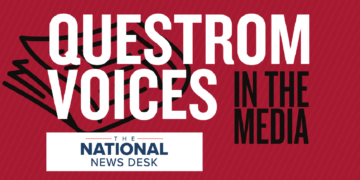When did we move from low to high inflation, where has U.S. inflation historically been, and where is it today?
Post 2008 Great Recession, for 14 years, we enjoyed the benefits of low interest rates and low inflation. This created a bull market for stocks, bonds, and real estate. It was as if these two opposing forces could live in harmony. By June 2022, with year-over-year inflation climbing to 9.1%, a 40-year high, we were reminded what happens when inflation is not properly managed. Although there have been periods of high inflation, historically, inflation held steady around 2%. At the start of 2023, inflation slowed to 6.4%, but it is expected to persist for some time.
CPI Jan 2003 – Jan 2023
| wdt_ID | Month | All items | Food | Food at home | Food away from home | Energy | Gasoline (all types) | Electricity | Natural gas (piped) | All items less food and energy | Commodities less food and energy commodities | Apparel | New vehicles | Medical care commodities | Services less energy services | Shelter | Medical care services | Education and communication |
|---|---|---|---|---|---|---|---|---|---|---|---|---|---|---|---|---|---|---|
| 1 | January 1, 2003 | 2.60 | 1.00 | 0.30 | 2.00 | 14.10 | 29.30 | -0.80 | 10.70 | 1.90 | -1.40 | -1.90 | -2.10 | 3.00 | 3.40 | 3.10 | 5.10 | 2.30 |
| 2 | February 1, 2003 | 3.00 | 1.40 | 0.90 | 2.10 | 22.00 | 43.10 | -0.20 | 18.50 | 1.70 | -1.50 | -2.30 | -1.40 | 2.60 | 3.20 | 2.70 | 5.10 | 2.20 |
| 3 | March 1, 2003 | 3.00 | 1.40 | 0.80 | 2.20 | 23.40 | 37.60 | 0.80 | 34.60 | 1.70 | -1.40 | -3.60 | -1.00 | 2.90 | 3.00 | 2.50 | 4.70 | 2.60 |
| 4 | April 1, 2003 | 2.20 | 1.20 | 0.50 | 2.20 | 13.00 | 15.80 | 2.80 | 27.30 | 1.50 | -1.80 | -3.80 | -1.20 | 2.70 | 2.90 | 2.20 | 4.40 | 2.60 |
| 5 | May 1, 2003 | 2.10 | 1.70 | 1.30 | 2.20 | 9.00 | 8.10 | 3.70 | 24.80 | 1.60 | -1.90 | -3.60 | -1.20 | 2.50 | 3.00 | 2.60 | 4.50 | 1.90 |
| 6 | June 1, 2003 | 2.10 | 2.20 | 2.20 | 2.10 | 9.30 | 8.40 | 3.20 | 28.30 | 1.50 | -1.80 | -2.60 | -1.40 | 2.20 | 2.90 | 2.40 | 4.60 | 1.50 |
| 7 | July 1, 2003 | 2.10 | 2.10 | 2.10 | 2.10 | 9.00 | 8.10 | 3.10 | 27.50 | 1.50 | -1.80 | -2.10 | -1.40 | 2.40 | 2.90 | 2.40 | 4.30 | 1.20 |
| 8 | August 1, 2003 | 2.20 | 2.50 | 2.70 | 2.10 | 11.80 | 14.50 | 3.30 | 25.90 | 1.30 | -2.20 | -2.70 | -0.90 | 2.50 | 2.70 | 2.20 | 4.20 | 1.10 |
| 9 | September 1, 2003 | 2.30 | 2.40 | 2.80 | 2.00 | 14.70 | 21.00 | 3.80 | 24.80 | 1.20 | -2.40 | -2.10 | -1.70 | 2.70 | 2.70 | 2.20 | 4.40 | 1.30 |
| 10 | October 1, 2003 | 2.00 | 2.90 | 3.70 | 2.10 | 8.80 | 9.80 | 3.20 | 20.40 | 1.30 | -2.40 | -1.60 | -2.20 | 2.50 | 2.90 | 2.40 | 4.00 | 1.40 |
| Month |
What key factors contributed to the dramatic spike in U.S. inflation in 2022?
It was a combination of two unexpected events. The COVID-19 pandemic caused sudden worker shortages that in turn disrupted the food supply chain from production, shipping, and distribution to retail. These market economics were further stressed in February 2022 when Russia invaded Ukraine, sending global food and energy prices higher. As the pandemic continued, many governments provided economic stimulus, sending large sums of money to businesses and households to buffer the impact of lockdowns and to protect jobs. This surge in available money boosted spending on consumer goods and housing which fed greater inflation. Looking back even further, some economists argue that the trillions of dollars in government debt used to pull the economy out of the 2008 Great Recession was another contributing factor.
What is causing consumer goods prices to remain high even as inflation cools?
Most recently, higher wages. Unemployment rates are at 3.4%, the lowest since 1969, giving pricing power to workers. Although some consumer goods prices, like used cars, have fallen, concerns remain that these price drops might only be temporary, especially as base wages are increasing by 4% and more. Higher wages mean more money to spend, putting upward pressure on overall prices. Even as inflation has cooled, the ongoing war in Ukraine will also put a cost floor on an array of consumer goods ranging from wheat to oil.
How can consumers manage high prices on everyday expenses such as gas, groceries, and living expenses?
With inflation still over 6% and the rise of the average wage not keeping pace, consumers are motivated to find creative ways to meet basic purchasing needs. However, doing so requires tradeoffs and sacrifices. This year, grocery prices are up over 10%, beef prices over 15%, and egg prices over 60%. Daycare and rents remain high, too. In response, consumers can drive less and eat less eggs, but many of these living expenses such as childcare, rent, electricity, heating, transportation, and daily groceries are necessary. One common coping mechanism is to switch from a name brand to a private label store brand. Use of product coupons are also up, as well as special sales purchases. Consumers are also spending less eating out, and less on non-food items. Mobile apps such as PriceGrabber can make it easier to find lower priced goods. It is not uncommon for gas stations even located next to each other to charge different prices. Using mobile apps such as Gasbuddy, is a great way to quickly find less expense gas. With less (if any) disposable income left after meeting basic needs, many consumers are also spending less on recreation and leisure. As a result, some planned vacations are being delayed or cancelled.
What can retailers do to accelerate the timeline of cost reductions?
In this high inflationary environment where consumers are even more price conscious, and demand is falling, retail margins are getting squeezed. This condition will be further exacerbated should the U.S. economy fall into recession. One common retailer strategy is “Shrinkflation.” The practice of countering increased costs by keeping prices down and offering reduced product size or count, e.g., smaller, or less cookies per box. Retailers are also focusing on cutting their cost structure. This includes responding to a shift in consumer preferences by carrying less expensive private label brands, sourcing products from cheaper places, and modifying store operations. A prime example of this cost-cutting trend is the number of self-checkout kiosks popping up. Retailers are also focusing on reducing marketing costs by gaining a deeper understanding of their customers, offering more customized messaging, and loyalty discount programs that allowing savings to be passed along.
Is it likely that some areas of the economy are going to see a drop in prices sooner than others, and which areas might stick around for longer?
Some pockets of the economy are showing pricing softness. At the top of this list include gym memberships, audio books, fast food, solar panels, cellphones, televisions, bicycles, and hotel rooms. Coffee and gas prices have also fallen. Used car prices too. Yet, the cost of essential items such as meat, dairy, fish and fruits are up double digits this year. The higher cost of cereal, baking goods and oils also appear to have more staying power.
A potential bright spot is that higher interest rates needed to fight stubborn inflation has helped to slow down the rise in home prices, which could help home buyers. With some experts predicting the end of interest rate hikes in 2023, mortgage rates are poised to fall, further helping home buying and refinancing. However, on a relative scale, home prices continue to be high, deterring many first-time home buyers.
Is the Federal Reserve Bank capable of taming inflation without pushing the economy into recession, given its recent track record?
To adequately tame inflation, the Fed would need to bring it down from 6.4% to the 2% target rate. It is a delicate balance, raising rates enough to quell inflation, but not too much or too quickly, that it pushes the economy into recession. Up until the first quarter of 2022, the Fed held the Fed Funds rate around zero. In hindsight, these rates were allowed to stay too low for too long. Since last year, rates have increased by an astonishing 4.75% in an unsuccessful attempt to get inflation under control. Over the next two rate-setting meetings, (March and May), the Fed is expected to raise rates another .50%. Using the current stock and bond market as a barometer, it is clear the market is not convinced the Fed will be able to thread this needle. Currently the 3-month to 10-year Treasury yield curve is inverted, sending an ominous signal that we may be heading towards recession. Compounding this problem, several prominent Fed rate setters have indicated their priority is fighting inflation, if it causes recession and job loss, that is the cost of meeting their mandate.
T10Y3M
| wdt_ID | DATE | T10Y3M |
|---|---|---|
| 1 | January 4, 1982 | 2.32 |
| 2 | January 5, 1982 | 2.24 |
| 3 | January 6, 1982 | 2.43 |
| 4 | January 7, 1982 | 2.46 |
| 5 | January 8, 1982 | 2.50 |
| 6 | January 11, 1982 | 2.32 |
| 7 | January 12, 1982 | 2.10 |
| 8 | January 13, 1982 | 2.13 |
| 9 | January 14, 1982 | 1.53 |
| 10 | January 15, 1982 | 2.08 |
| DATE |

























